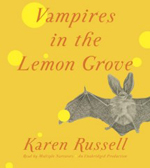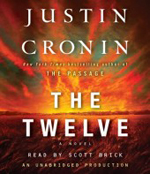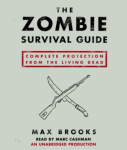
 Kafka on the Shore
Kafka on the Shore
By Haruki Murakami; Performed by Sean Barrett and Oliver Le Sueur
Publisher: Random House Audio
Publication Date: 6 August 2013
ISBN: 9780804166553
[UNABRIDGED] – 19 hours, 2 minutes
Excerpt: | MP3 |
Themes: / cats / helpful librarians / metaphysical reality / Japan /
Publisher summary:
This magnificent new novel has a similarly extraordinary scope and the same capacity to amaze, entertain, and bewitch the reader. A tour de force of metaphysical reality, it is powered by two remarkable characters: a teenage boy, Kafka Tamura, who runs away from home either to escape a gruesome oedipal prophecy or to search for his long-missing mother and sister; and an aging simpleton called Nakata, who never recovered from a wartime affliction and now is drawn toward Kafka for reasons that, like the most basic activities of daily life, he cannot fathom. Their odyssey, as mysterious to them as it is to us, is enriched throughout by vivid accomplices and mesmerizing events. Cats and people carry on conversations, a ghostlike pimp employs a Hegel-quoting prostitute, a forest harbors soldiers apparently unaged since World War II, and rainstorms of fish (and worse) fall from the sky. There is a brutal murder, with the identity of both victim and perpetrator a riddle–yet this, along with everything else, is eventually answered, just as the entwined destinies of Kafka and Nakata are gradually revealed, with one escaping his fate entirely and the other given a fresh start on his own.
I went on a Murakami reading binge in 2009, and suddenly found myself hitting a wall. What I had started out loving started to overwhelm and suffocate me. I knew I needed a break from him for a while.
I did take a break from the break to read 1Q84, which I really enjoyed. As I listened to the audiobook of this novel, I found myself wishing I’d read this prior to 1Q84. Some of the themes are the same, and I don’t just mean the silly themes like cats and pasta and music, but shifting realities and not being sure about who you are on many levels. They seem more concise in this novel, and I think having this experience first would have made 1Q84 even better.
This past year, Random House has been putting many of Murakami’s works out on audio, so I jumped at the chance to listen to this one as I had not yet read it in print. I enjoyed the audio production immensely. The two narrators bring completely different feelings to the different sections, and the novel shifts back and forth between the narratives of Kafka and Nakata. I enjoyed the haven of the library and the very helpful librarian, but that might have been the only moment of reality in this book.
Murakami always sends me off to listen to music, not just by work but certain performances of a work. I spent several afternoons listening to the Archduke Trio (Beethoven) as performed by the “Million Dollar Trio.” Great stuff.
Posted by Jenny Colvin






